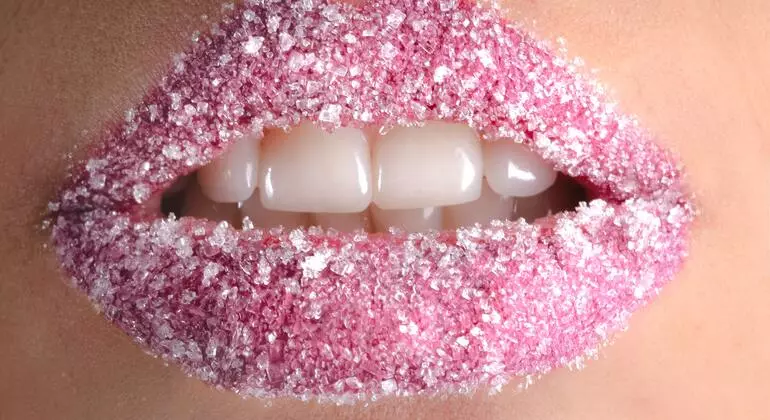Halitosis is a medical term for bad breath. It can be caused by a variety of things, including poor oral hygiene, dry mouth, certain foods and drinks, and certain medical conditions. Treatment for halitosis often involves improving oral hygiene and addressing any underlying medical conditions. It is important to see a doctor if you are concerned about bad breath.
Table of Contents
What is Halitosis
Halitosis is a medical condition that is characterized by persistent bad breath. It can be caused by a variety of factors such as gum disease, certain foods, smoking, or dry mouth. People who suffer from halitosis often report feelings of embarrassment and self-consciousness due to their condition. Fortunately, halitosis can be managed with proper dental hygiene and lifestyle modifications such as quitting smoking and drinking plenty of water.
Bad breath, often known as halitosis, may be unpleasant and, in some situations, anxiety-inducing. It’s no surprise that store shelves are brimming with gum, mints, mouthwashes, and other goods aimed at combating foul breath. However, many of these items are merely band-aid solutions since they do not address the root source of the problem.
Causes for Halitosis
Halitosis is caused by bacteria that break down proteins in the mouth, releasing foul-smelling sulfur compounds. It can also be caused by dry mouth due to dehydration or certain medications. Halitosis can be uncomfortable and embarrassing, and can even make socializing difficult.
Halitosis is the medical term for bad breath. It is a condition that affects millions of people worldwide and can be caused by a variety of factors. Eating certain foods and not brushing or flossing your teeth are two of the most common causes of halitosis. Additionally, other factors such as poor dental hygiene, smoking, respiratory infections, and certain diseases can also contribute to bad breath.
Because of the chemicals they create, diseases such as certain malignancies and ailments such as metabolic disorders can induce a characteristic breath odor. Bad breath can be caused by chronic stomach acid reflux (gastroesophageal reflux disease, or GERD). A foreign body, such as a piece of food, stuck in a nostril can produce bad breath in young infants.
Symptoms for Halitosis
The most obvious symptom of halitosis is bad breath. Other symptoms may include a dry mouth, a white or yellow coating on the tongue, and a bad taste in the mouth. Some people with halitosis may also experience difficulty swallowing or a sore throat. In some cases, halitosis can be a sign of a more serious underlying medical condition, such as gum disease or an infection in the mouth, throat, or lungs. If you are experiencing any of these symptoms, it is important to see a doctor for a proper diagnosis and treatment.
The root or underlying cause of bad breath smells varies. Some people are very concerned about their breath even though they have little or no mouth odor, while others have awful breath and are unaware of it. Because it’s tough to judge how your own breath smells, get confirmation from a close friend or family.
Treatment
Halitosis, also known as bad breath, is a common condition that affects people of all ages. It is caused by bacteria on the tongue and teeth, as well as from the breakdown of food particles in the mouth. Treatment for halitosis involves regular brushing and flossing, as well as tongue cleaning and other oral hygiene practices. Additionally, drinking plenty of water and cutting back on strong-smelling foods can also help reduce the symptoms of halitosis.
Consistently practice proper dental hygiene to decrease bad breath, prevent cavities, and lessen your risk of gum disease. Treatment for foul breath might differ depending on the cause. If your foul breath is suspected to be the result of a medical illness, your dentist will most likely recommend you to your primary care physician.
Your dentist will work with you to help you better control conditions connected to oral health. Dental precautions may include:
Toothpaste and mouth rinses. Your dentist may suggest a mouth rinse that kills germs if your foul breath is caused by a buildup of bacteria (plaque) on your teeth. Your dentist may also recommend antimicrobial toothpaste to destroy the germs that cause plaque accumulation.
Dental illness treatment. You may be sent to a gum specialist if you have gum disease (periodontist). Gum disease can cause your gums to slip away from your teeth, forming deep pockets that are infested with odor-causing bacteria. These germs are sometimes only removed by skilled cleaning. Your dentist may also advise you to replace damaged tooth restorations, which serve as a breeding ground for germs.
Conclusion
Halitosis is a medical condition characterized by bad breath and a lingering odor caused by bacteria in the mouth. It is a common condition that affects people of all ages and can be caused by a number of factors such as poor dental hygiene, dry mouth, smoking, certain foods, and certain medications. It can also be a symptom of other underlying medical conditions. Treatments for halitosis include regular oral hygiene, rinsing with an antiseptic mouthwash, and drinking plenty of water to keep the mouth moist.
